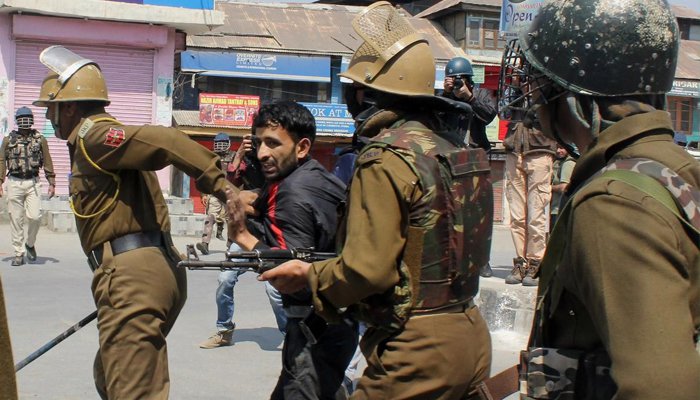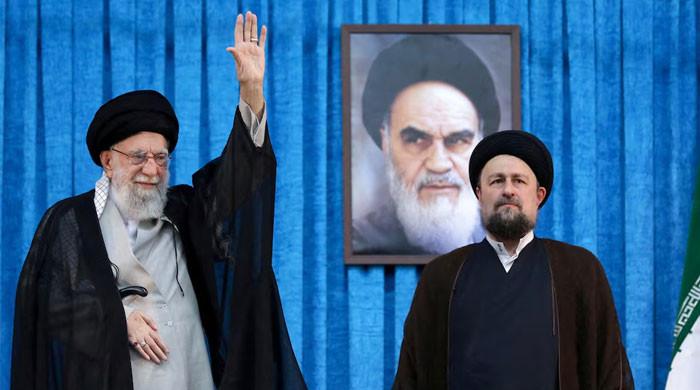India ignored five UNHRC letters on human rights violations
The Indian side will not have much to defend during the upcoming India European Union Summit on July 15, 2020
July 10, 2020

In sharp contrast to its recent celebrations on becoming non-permanent member of UN Security Council, India has totally disregarded concerns and objections in five letters by UN Human Rights Council (UNHRC) about human rights abuses in Jammu and Kashmir, India’s new terrorism law and the Citizenship law.
UNHRC's latest letter to the Indian government on Kashmir dated May 4, 2020, lists 14 cases in which boys of 12-14 were brutally tortured and humiliated, screams of those tortured were aired via loud speakers to neighbouring villages, victims were forced to commit suicide after torture or suicide allegations were levelled against them, and victims were made to walk barefoot on broken glass, besides others.
In the five letters, UNHRC experts raised pertinent questions and pointed out violations by Indian authorities of the resolutions by UN Security Council, General Assembly and UN Human Rights Council.
Similar violations were pointed out against relevant clauses of International Covenant on Civil and Political Rights (ICCPR) and laws and Convention Against Torture (CAT) and International Convention for the Elimination of Racial Discrimination (ICERD) which the Indian government has ratified.
Based on such disregard for the UN charter and international conventions, the Indian side will not have much to defend during the upcoming India European Union Summit on July 15, 2020.
The situation in Kashmir has already been debated in the European Parliament and a vote is pending on a Resolution by all major EU parties on the discriminatory clauses in the new Indian Citizenship law.
Similar questions will be raised in upcoming UN General Assembly. OIC and a number of Muslim countries regularly criticise India for abuse of Muslim rights and annexation of Kashmir.
On July 4, 2020, United Nations Human Rights Council (UNHRC) made public 14 cases of worst possible human rights abuses in Jammu and Kashmir after the Indian government failed to respond to their concerns within the stipulated 60 days.
Four UNHRC Rapporteurs on torture, extrajudicial executions, minority issues and freedom of religion under HRC charter and mandate had written to Indian government on May 4th, 2020, to respond back on the 14 cases and countless other cases involving grave abuse of human rights in Kashmir after its annexation on Aug 5th, 2019.
The UN Rapporteurs in the May 4th letter lamented that Indian government had not responded to their earlier letters on Aug 16, 2019, and February 27, 2020, on the atrocities in Kashmir. The two earlier letters questioned the restrictions in Kashmir on rights of expression and assembly and dissent following Indian annexation of Kashmir.
In another letter on May 6th, 2020, eight Rapporteurs of UNHRC and one Vice Chair of a Working Group raised serious concern on the new anti-Terrorism law passed by Indian parliament just before Indian annexation of Kashmir in July/Aug 2019.
UNHRC questioned the detention of any accused for an extended period of six months under the new anti-terror law . And as to why the burden of proof has been shifted to an accused to prove innocence on any allegation of terror.
Questions were raised on powers to raid, inspect etc., which are serious breaches of privacy. The letter also raised serious concern that minorities, civil rights activists and human rights defenders in India will become extremely vulnerable under such law.
In another letter on February 28th, 2020, eight Rapporteurs of UNHRC and one Vice Chair of a Working Group questioned the Indian Citizenship Act of December 2019 which discriminates against Muslims and bars them to get Indian citizenship whereas people from different religious beliefs who entered Indian before Dec 2014 are eligible for it. The letter also heavily criticise excessive use of force to quell protests against this Act which resulted in death of over 50 and injuries to hundreds.
Of very special and consistent concern for UNHRC has been the grave human right situation in Kashmir after its annexation. The latest UNHRC letter of May 4th, 2020 lists 14 cases with details and held that four out of these victims died during extreme torture and abuse by Indian army and police.
Among the worst incidents quoted in May 4th, 2020 letter by UNHRC is the case of Yawar Ahmed Bhat, a 15-year-old from Pulwama district who died on Sept 19th 2019 due to police beating and police alleged he committed suicide. A similar case is of Riyaz Ahmed from Kupwarra in North Kashmir who was detained for four days in early September 2019 and was severely tortured. Police told his family that he committed suicide which was challenged by relatives and mass protests erupted. A Magisterial enquiry was ordered and findings are still awaited.
One Irfan Ahmed Fafoo, only 20 was made to walk barefoot on broken glass after he was arrested with his 60 year old father. In another unfortunate incident , Arif Wani from Shopian district was taken to an army camp after Indian soldiers raided his house. His screams during torture were broadcast over loudspeakers to surrounding villages.
UNHRC Rapporteurs asked Indian government to share information about police and judicial investigation into the 14 cases listed in its letter and in other cases. The Indian government has not replied to this and other letters and continues to violate UN Charter and International conventions.











